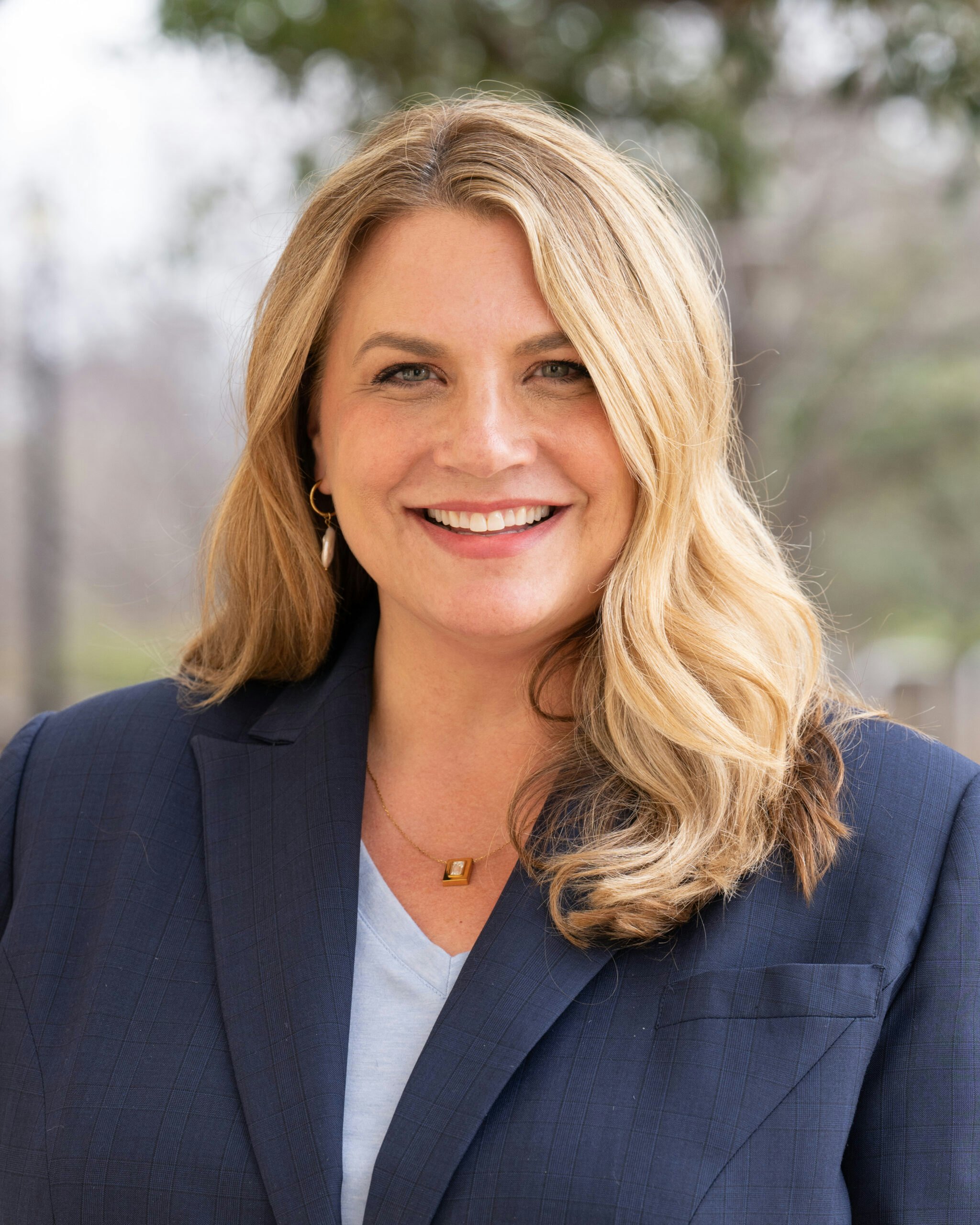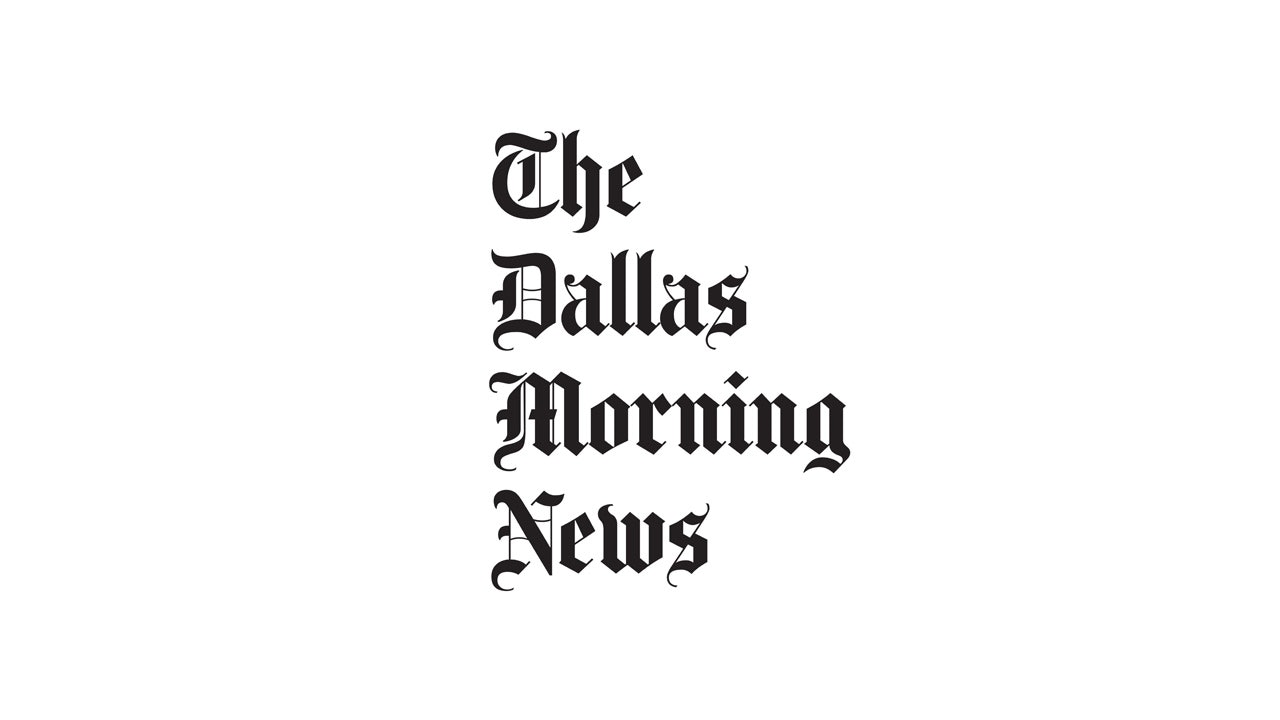Louisiana State Superintendent of Education John White shares a state leader’s perspective on accountability.
John White has served as Louisiana State Superintendent of Education since 2012. During that time, the former English teacher has drawn national attention for Louisiana’s work to ensure every student is on track to a postsecondary degree or a good career. The former superintendent of Louisiana’s Recovery School District, White has served as deputy chancellor of schools under former Mayor Michael Bloomberg and former Chancellor Joel Klein. He now is chairman of Chiefs for Change, a non-partisan group of state education leaders.
In this A Word interview with Anne Wicks, the George W. Bush Institute’s education reform director, and William McKenzie, the Bush Institute’s editorial director, White observes that proponents of accountability need to recognize where accountability has been working and where it has not been working. Louisiana’s top education official contends that the nation’s diversity and decentralized education system requires accountability systems to ensure students are on track. But the lack of trust that arises in holding others accountable requires making sure educators, parents, and students understand the terms of the accountability system. That will help build trust and keep the real goal in mind of equipping students for their futures.
How do you define accountability?
Accountability is literally the accounting of what happened insofar as it can be objectively explained. It provides information to the responsible parties and relevant consumers. It’s a simultaneous telling of a story as objective fact and showing the need to react and improve in light of that story.
[Accountability] is a simultaneous telling of a story as objective fact and showing the need to react and improve in light of that story.
And has that definition changed any over time?
No, those principles remain true. But there is a connotation to the word that we should at least understand.
The connotation rose out of a political movement that united civil rights and business interests concerned about international competitiveness. They were suspicious of the education establishment’s claims that it was holding itself accountable by having credentialed people do the work. You know, “Trust us. We’re accountable.” The response was, “No, we’re going to hold you accountable.”
There are legitimate questions as to the trade-offs inherent in that approach. Anytime you insist on holding someone else accountable, you are in part saying they can’t hold themselves accountable. I don’t say this lightly, but 35 years into that movement, it’s worth looking at what has been accomplished and how the balance between external and local accountability is and is not working.
Do you have an alternative in mind?
Critics of the contemporary accountability regimes say that we need to operate in a more high-trust manner. We should be wary of that perspective because of the decentralized way that our education system is structured. Until that structure changes, operating a high-trust environment, as some of the more productive educational systems around the world do, seems pretty naïve. But there is a lot to be learned from those systems.
Where do you see an example of a high-trust environment?
The system is routinized in some East Asian and European systems so teachers and students can have faith that Y will result if they do X. If you do these things proficiently, you can count on certain things happening.
That is a more managed vision of what school systems look like. There isn’t the incessant negotiation between management and labor that there is in the United States. There isn’t our mismatch of standards, curriculum, professional development, and preparation. Teachers and students navigate through articulated, routinized pathways in a way that gives them more to count on.
We probably will never get to, and maybe wouldn’t want to get to, a level of routine or systematization that some of these countries have. It would be antithetical to the pluralism that is at the heart of our republic. We have a more dynamic and diverse environment than most nations.
But you do generate a lack of trust when you hold accountable an individual teacher and don’t give them a high-quality or standards-aligned curriculum. Or a college of education doesn’t train them to use the school system’s curriculum. Or a state certifies a math teacher who doesn’t know math, but holds that person accountable for math results. You generate a lack of trust when you don’t you give that teacher the X + Y = Z equation that they can count on.
This is not to say accountability is wrong, not at all. But an exaggerated accountability response in combination with exaggerated chaos within the system will produce distrust. We should understand the trade-offs and should provide a more coherent system at every turn.
But an exaggerated accountability response in combination with exaggerated chaos within the system will produce distrust. We should understand the trade-offs and should provide a more coherent system at every turn.
You’re describing a more effective accountability environment. Is this thinking about the consequences in a fairer way?
Yes, although I’m not really saying that the system is unfair. All I’m saying is that the underlying condition that necessitates robust accountability in the United States is fragmented governance, pluralism, diversity, and the historical biases that come with a mistreatment of different populations within our society. We have gravitated toward a system that measures outputs for the sake of trying to be consistent across inconsistent political subdivisions and communities.
The result is some school systems make their academic environments more consistent and less chaotic. But in those places where incoherence remains, teachers experience a more amped-up version of the academic chaos.
And that is the tension in American accountability. In other places where there’s greater central control, they can manage the levers within the system to create the X + Y = Z equation that engenders trust and may not necessitate the amplified focus on outputs-oriented accountability. We don’t have that control at the central governmental level here and probably wouldn’t want it.
So, we have relied on back-end accountability, but we need to understand that the effect of that goes in two directions. It is positive where there is or can be a coherent academic environment. And it is potentially negative where locals have resisted coherence or been unable to achieve it, because it amps up the lack of trust. Maybe that leaves us with the conclusion that we need to get the incoherence within system to be more coherent.
The underlying condition that necessitates robust accountability in the United States is fragmented governance, pluralism, diversity, and the historical biases that come with a mistreatment of different populations within our society. We have gravitated toward a system that measures outputs for the sake of trying to be consistent across inconsistent political subdivisions and communities.
How do you apply accountability in your work?
We have both quantitative output systems and qualitative input systems. We set up those structures to evaluate pre-K through 12th grade public and private school-system providers, educator-preparation structures, and providers of charter school services and course-offering services.
But the important thing is that every party, whether a producer of the services or a consumer of them, be as conversant as possible in the terms of the system’s academic values, what we’re trying to achieve. The fluency with which various constituencies speak about academic values helps create trust.
It is no small thing to have even the senior-most people of the organizations understand the terms of the accountability system. You want them to understand what it means to achieve proficiency in a subject versus mastery of it. You want them to understand the distinction between graduating from high school and graduating with a valued industry-based credential. And you want them to understand that those things shouldn’t be fetishized to the exclusion of developing highly-capable, literate, responsible young men and women.
You want the accountability system understood as being about producing self-directed, responsible young adults, not just the metrics that everybody wakes up in the morning thinking about. That’s a tricky tension that any manager will understand.
States are now implementing their accountability systems under the Every Student Succeeds Act [ESSA]. What do you worry about or feel hopeful about?
I am hopeful about everything that we have discussed. I’m hopeful about more coherent school systems. I’m hopeful about more focused school leaders and district leaders. I’m excited about a system that is more ambitious in its aspirations for students in a state that has historically been besieged with low academic and education outcomes and still faces real challenges. I’m very hopeful about the role of accountability.
If I have concern about ESSA, it is that I don’t think we took a step forward in defining what we want the education system to do or what we hope for our children. We had years to work on that, and we didn’t move the ball very far.
If I have concern about ESSA, it is that I don’t think we took a step forward in defining what we want the education system to do or what we hope for our children. We had years to work on that, and we didn’t move the ball very far.
If you look at where we moved between A Nation at Risk in the early Reagan years and the congressional legislation of the 1990s, we moved very far in terms of defining what we want schools to do. Between 2002 and 2016, when No Child Left Behind and ESSA we’re implemented, I don’t think we changed much of our definition of what we want schools to achieve. We changed the governing model and the rules around it. But as we exercise tremendous authority over what schools do, the law did not evolve the definition of what we want them to do.
For example, when Congress allowed states under ESSA to offer measurement systems that were beyond those that existed under NCLB, the majority of states went after absenteeism and chronic absenteeism. We can call that valid or not, but we need to understand that states are including that in their systems principally because they can measure it. They didn’t go after it because they thought that absenteeism was the most important thing they could direct schools to focus on, important as it is. First and foremost, it was quantifiable.
That is a real step backwards. To have no real opportunity for states to improve the development of children through better measurement is a missed opportunity.
Is it possible, or even a state responsibility, to say, “Here is our vision, and here is the coherence that leads to it”? A very short list of state ESSA plans actually did that.
First, every state is structured differently. Some states are in a position to have the commonality that you’re seeking, but some states are less likely.
Coherence goes vertically for the students. You want the family to be able to look out from early ages and say, “By the time my student exits the education system, whether that’s at age 19, 22, or 25, they will have had a set of experiences where the expectations were always evident to us, that one experience led to the next, and that it culminated in real value for my child.”
Coherence should go laterally for teachers. They should be able to look from the moment they entered the profession to the moment they proved themselves in a residency to the moment they were trained on using specific curriculum by qualified professional-development providers to the moment they were evaluated.
They should understand that the evaluation is directly linked to how well they have learned to implement changes and ultimately to their leadership path as educators. They should be able to see whether they can get really good at this job and take on more responsibilities. Those are the promises of coherence for teachers.
The verbal promise for the child and the lateral promise of progress and growth for the adult does seem possible. It’s hard, but it seems eminently possible.
Accountability systems obviously produce ample data. So how do you use data in your role, and what limits you from getting the data you wish you had?
Short-term, intermediate-term, and long-term data are all important.
On a short-term basis, we should be prototyping and piloting initiatives. We should be doing daily implementation and observation in school systems. Administrators like me should be receiving those data on a regular basis and making quick adjustments in light of those outcomes.
Secondly, we should be receiving annually what has happened in a school year and making adjustments to our overall strategy in light of that information. Any school system and school should be able to do that.
Third, we should be in touch with research that isolates factors more clearly. We should be voracious consumers of research that allows us to direct our strategy in more than a yearly or daily adjustment.
States and most school systems are not well set up to get the daily data feed. The post-NCLB world has generated a private sector that’s interested in providing data to teachers and administrators, but it’s not clear always what the data are in the service of or that they’re consistent with the goals of the district.
New governors are selecting education leaders. What advice do you have for people who are coming into a role like yours or as a senior policy advisor?
This is not a particularly complicated industry. It is a complicated business to implement but there’s a lot of evidence as to what works and what doesn’t. My strong suggestion is to establish priorities that are based in evidence and that have a chance of affecting people’s lives positively. And try to wall yourself off from all the distractions that don’t have much to do with scalable, positive outcomes for students. Get a plan together, stick with the plan, and stick around long enough to make adjustments when things need to change.
What holy grail issues in education have we been unwilling to address?
Public financing of education. People don’t want to talk about it, but how states finance their education systems needs to be addressed. We cannot expect to have a better system and continue to fund education with no real plan for greater productivity than our present model.
I don’t say that as a partisan advocating greater levels of disruption nor as a traditionalist advocating for more resources. But you can’t expect to finance an enterprise in the same way for a century and expect to get different outcomes.
That said, we can do more to be successful and productive even within the current system’s constraints. We have artificial, random divisions of governance between early-childhood and K-12, between K-12 and higher-education and the workforce, and between colleges of education and schools. We have tolerated institutional self-preservation rather than a productive synergy.
There are serious opportunities for changes within the guts of the system and on the periphery, if states are willing to tread new ground.
What is at stake for us as a country to get this right? What is at stake for Louisiana?
This may be expected but it still is right: A skilled, engaged, and connected population is the best way to maintain a nation’s economic viability. But there’s even more at stake. The education system is essential to our country being what it wants to be.
The founding of our country is based on the idea of self-interested citizens who are ambitious and want prosperity for themselves and are self-directed. The founding also is based on strong community members who are capable of navigating our society and contributing to it.
This is a country where more rides on the capacity of any individual and more value has been derived from the contributions of individuals than maybe in any society. We have a delicate balance between the communal and the individual that necessitates an educated, informed, and capable citizenry.






























